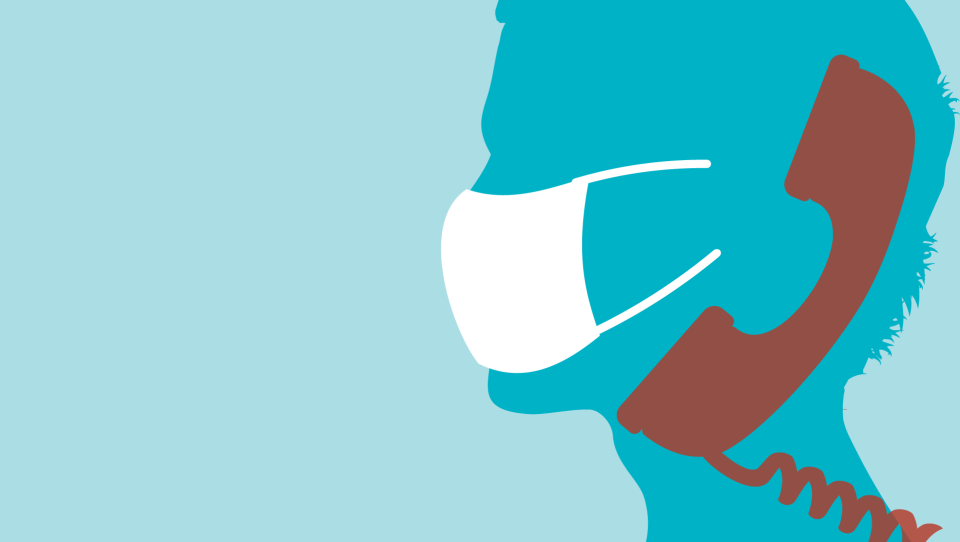Until the last week of April, Dallas Paiva had a straightforward job title: member service representative for Blue Cross Blue Shield of Massachusetts.
But then, Paiva — who is 24 years old and from New Bedford — got a call from her boss. She was being temporarily re-deployed for eight weeks, maybe longer, as a part of a coronavirus contact tracing team.
“The very first emotion was definitely anxious,” said Paiva. “Being someone who is used to taking inbound calls, it's certainly going to be a transition to actually having to place calls.”
Paiva is one of about 100 Blue Cross Blue Shield employees joining a team of more than 1,000 contact tracers, case investigators and case resource supervisors that is being managed by Partners In Health, the global health nonprofit organization. This is part of the Community Tracing Collaborative, an ambitious effort by the commonwealth of Massachusetts to stop the spread of coronavirus.
The collaborative is supporting the state’s local boards of health in an effort to reach out to every person who has tested positive for the virus, as well as every person a patient might have infected, and help them isolate themselves safely so they don't infect anyone else with the highly-contagious virus.
After a week and a half of training, Paiva said she’s become excited — even honored — to be part of the team trying to stop the pandemic, especially since her own family has been impacted by all of the layoffs that have resulted from the pandemic's economic fallout.
When she starts making phone calls, Paiva said, she’ll be relying on years of experience working with people.
“I started working when I was about 15 years old, I got a worker's permit. So, I was in fast food for a while and then, after fast food, I got into sales,” she said.
However, she knows this experience will be different and, she admitted, there is a lingering sense of anxiety.
“I will expect to either be hung up on or be sent straight to voicemail,” she said. “And I expect some people might take the phone call, and they might be afraid that it could be a scam call”
From her work at Blue Cross Blue Shield, Paiva said she knows what it is like to talk with someone who has just heard a devastating diagnosis or is worried and upset. In her recent training to become a contact tracer, she learned about what’s called a “psychological first aid kit” — a set of techniques for helping people who are in crisis — which she found to be particularly helpful.
“[If] somebody expresses, maybe, some suicidal thoughts while they're on the call with you, there is a response for that,” Paiva said.
She added that the response involves careful, supportive listening and escalating the call so the person can get connected with existing social services.
But in other, less dire situations, Paiva said she may be tasked with doing follow-up calls. Basically, she’ll check on people who are isolated or quarantined every day or every-other day.
“You have to be alone. You can't technically be around other people in your household. And I can imagine that must be pretty lonely,” she said. “If it comes down to me having a conversation with somebody, and they just need to talk about something or vent or anything, I want to make sure that I'm here to listen.”
While the Partners In Health’s team is officially live this week and some portion of the team has been making calls since mid-April, Paiva said it’s clear there are still some kinks that need to be worked out.
“I'm waiting for an email to see who my supervisor is, what team I'm on, what my role is. I want to know: How long am I on calls for? What's my break period?” she said. “I'm hoping by next week or even the week after, that it will be a lot more streamlined and smooth.”
Partners In Health compared this initiative to adding train cars while the train is moving. The key thing, team leaders say, is that things are moving forward.







